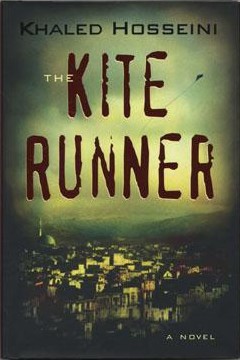Modern Classics is a series in which writers argue for one of their favorite contemporary books that deserves an induction into the pantheon of literary classics
What makes a book a classic?
Authors like F. Scott Fitzgerald, William Shakespeare and Harper Lee were able to find the answer to that question and join the exclusive club of writers in the hall of literary classics. Maybe it was the timelessness of their stories, their eloquent uses of language or some ineffable element that resulted in their inductions to the classics club.
Whatever the reason, works by these authors and a handful of others are regarded as some of the best novels ever written. They’re taught in high school classrooms across the country and are still referenced today.
These books are the ones that stay with the reader long after the last words are read, with protagonists who feel like close friends and fictional settings that feel familiar enough to plan a visit to.
Novels with symbolism and diction that are carefully pondered over, where impactful scenes make the reader feel emotion simply from their words.
It’s a tall order to be a classic novel and a glance at the list shows how rare it is for contemporary books to find spots on it. While it’s wonderful to keep these incredible, older works in the public vernacular for years to come, the list could use a facelift and add in a few modern classics.
First item on the list: “The Kite Runner” by Khaled Hosseini.
Hosseini was born in Kabul, Afghanistan, and moved with his family to California at the age of 15. Hosseini draws heavily upon experiences from his youth and his Afghan-American heritage in his writing. All three of his novels feature an Afghan protagonist and take place, at least partially, in his native country. All three of his books have received immense praise, but “The Kite Runner” is his first and is most deserving of the title of a modern classic.
The story is about Amir, a Pashtun boy who craves his father’s affection, and his father’s child servant Hassan, who is like a brother to Amir. Told from Amir’s perspective, the book follows him through his complicated relationships with his father and Hassan, his journey to America and the struggles he must confront because of the mistakes of his past.
Hosseini’s novel is well-written and utilizes beautiful diction and detailed symbolism that enhance the story. Yet, the characters are what make this book a modern classic.
While Amir’s life is unique and his experiences aren’t always things that a reader may have undergone, the insecurities with which he suffers throughout the novel are universally relatable.
Anyone who has ever experienced jealousy or a desire for love and attention from another can understand the inner struggles of Amir and can relate to the self-doubt and conflicting emotions caused by his mistakes.
Amir is a protagonist who is far from perfect and there are times in the novel where a reader will be justifiably frustrated by Amir’s actions. This imperfection makes Amir relatable and his story classic.
No matter what a person’s background, where they live, what language they speak or how old they are, no one is perfect.
Hosseini’s book tells the specific story of one Afghan-American’s life, relationships and inner conflicts while dictating the universal story of the human desire to be loved and accepted despite imperfection. If this novel isn’t a modern classic, nothing is.
Follow Victoria Pereira on Twitter









